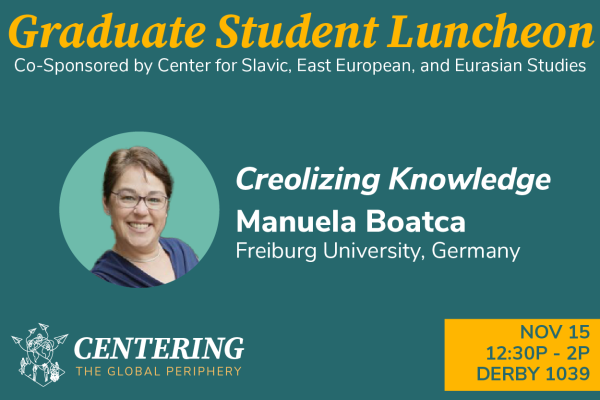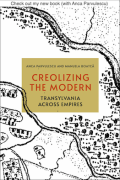
Co-sponsored with the Center for Slavic, East European, and Eurasian Studies
The project of creolization involves the rethinking, reframing, and creative recomposition of the received categories structuring our disciplines—from Europe to the Americas, from the modern to the global. The invention of Latin America as “New Romania” (Nouvelle Romania, a linguistic and cultural sphere of influence) was an ideological move. Through it, France, which had lost its most prized colonial possession in the Caribbean after the Haitian revolution of 1791–1804 and had been forced to sell Louisiana to the United States as a result, tried to maintain political control in the American colonies and thus partake of coloniality. In the process, Latinity was gradually displaced from the center of Christianity and increasingly equated with Catholicism. Yet modern nations in the European East claimed allegiance with classical empires - an attempt at trans-imperial negotiation in a world-system increasingly dominated by West European colonial powers. Creolizing knowledge is discussed here as a way of retrieving the claims of peripheral regions in both colonial and imperial situations to shaping the categories we employ - "Eastern" Europe, "Latin" America - and the legacies they bespeak .”
Book: Creolizing the Modern

How are modernity, coloniality, and interimperiality entangled? Bridging the humanities and social sciences, Anca Parvulescu and Manuela Boatca provide innovative decolonial perspectives that aim to creolize modernity and the modern world-system. Historical Transylvania, at the intersection of the Habsburg Empire, the Ottoman Empire, Austria-Hungary, and Russia, offers the platform for their multi-level reading of the main themes in Liviu Rebreanu's 1920 novel Ion. Topics range from the question of the region's capitalist integration to antisemitism and the enslavement of Roma to multilingualism, gender relations, and religion. Creolizing the Modern develops a comparative method for engaging with areas of the world that have inherited multiple, conflicting imperial and anti-imperial histories
Purchase Creolizing the Modern by Anca Purvulescu and Manuela Boatca
